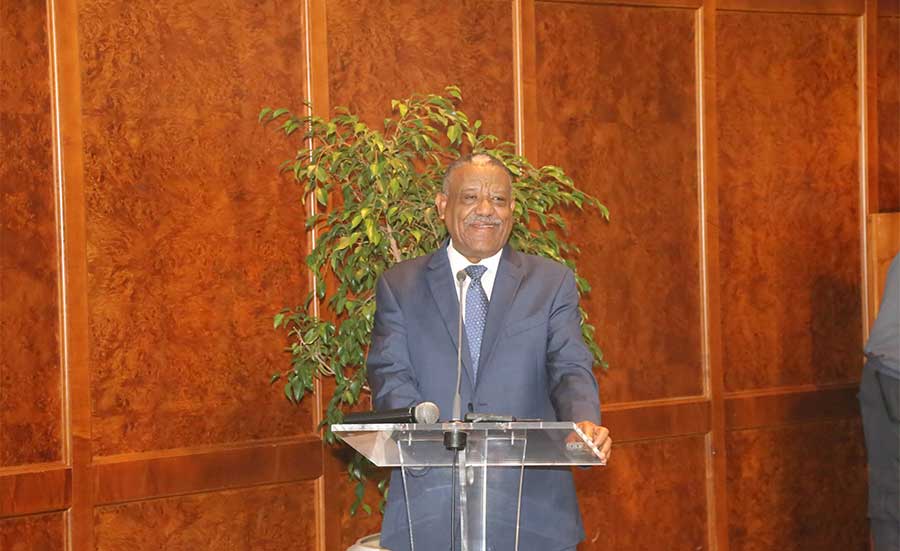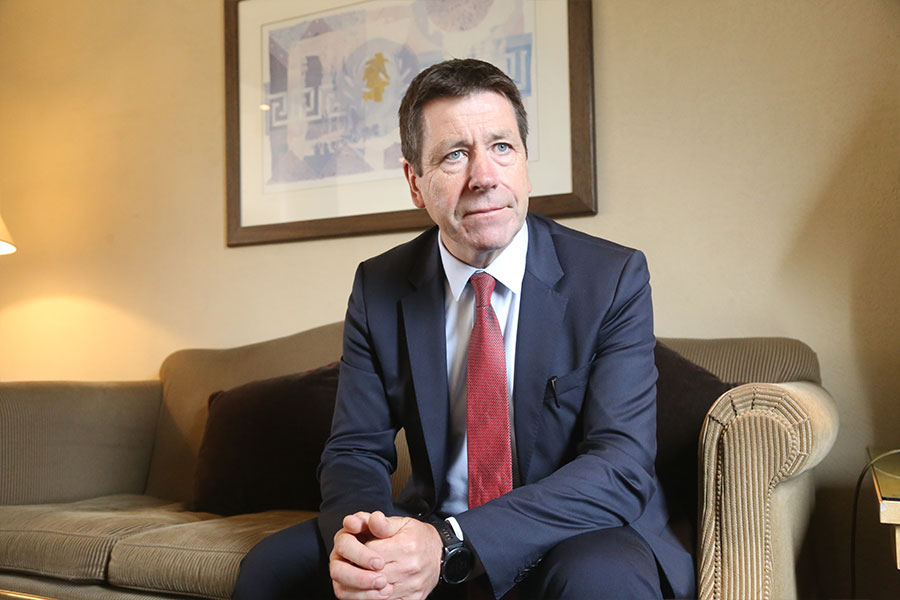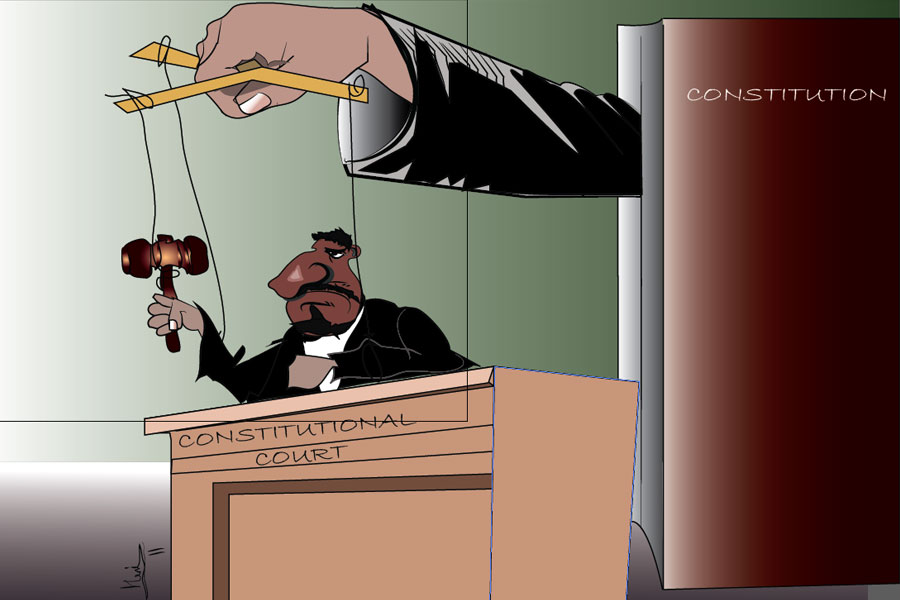
Jul 20 , 2019.
In March this year, representatives of 107 political parties gathered at the Addis Abeba Hilton and signed a milestone document. It is a covenant to govern their legal activities, responsibilities and relationships with one another, an agreement signed by almost all political persuasions, perhaps, for the first time in the political history of this country.
It was indeed a remarkable accomplishment for the administration of Prime Minister Abiy Ahmed (PhD). Even though there were political agreements signed before, none were as inclusive as the code of conduct signed last March. That is not all.
It is a unique covenant in that all parties, including those that used to wage armed struggle against the Ethiopian state, accepted the constitutional order. They agreed that only the state is vested with a monopoly of coercive but legitimate use of force. A council was agreed upon to be formed with the mandate to arbitrate claims between parties.
Under the agreement, all the signatories have equal voice in the council, and they have agreed to settle all differences through its ethical codes. The council chair rotates among its members every six months.
This council was supposed to serve as a conflict resolution platform when there were differences between political parties or between the parties and the state. It was supposed to have the power to name and shame a party if repeated efforts to correct any circumvention of the covenant is not fixed. This peer review mechanism, if properly applied, was a wise idea that could save the country from its current predicament.
Alas, four months from that hopeful day, hardly any shred of the pact has materialised. Instead, signs are that these are perilous times in Ethiopian politics. The country appears to be sleep walking into a constitutional crisis.
The implosion is in motion from within the ruling coalition, the EPRDF. With leaders of its component parties only looking out for the interests of constituencies they claim to represent - and with every one staking a claim for the maximum position - not many are leaving any room for compromise. Suffice to say, the war of words between its two senior members, the TPLF and the ADP, is a good example.
They seem unable to sort out their differences through existing internal mechanisms. They were compelled to escalate their tug of war out in public. Unhealthy and unconstructive, it signals that the country is at an impasse.
Most other groups outside of the ruling coalition do not even recognise the right of others to exist. Some of them have openly called for the destruction of this or that party in the EPRDF or the liquidation of the EPRDF all together.
Ironically, many of these groups that loudly proclaim uncompromising positions on behalf of some sections of society or others are self-appointed players. It would be hard to accept them as legitimate voices of the people that they claim to represent until there are credible elections to support their claims. No party or political entity should claim to have the mandate to represent any citizen, let alone speak on behalf of the public.
It would help a lot to have a basic understanding of this foundational fact. There has to be a consensus on the foundational principle of democracy, values well articulated in the covenant that the political parties have signed.
But this may be too important to be left in the hands of politicians alone. It needs the commitment of citizens. The voices of many mobilised through civil society platforms can be indispensable. No less significant would be the voice of elders, religious leaders and prominent personalities revered by communities to rise to the occasion in defence of human dignity.
The dignified life of a citizen, above and beyond the fault lines of identity and affiliation, can only be guaranteed by a state that is lawful and democratic. Reconfiguring the state and its institutions to be guardians of a system that are enforcers of the rule of law has always been the yearning of many in Ethiopia over the decades. Many lives were sacrificed for such a noble cause to abandon it now.
The silence by these voices or the decision to speak out today determines the kind of country Ethiopia is going to be. If citizens want a democratic state that exercises a peaceful transition of power, instead of one that goes through violent revolutions and wars every time they want a change of government, then they have to be unequivocal in rejecting parties that use violence and insurrections as a means of acquiring political power.
Citizens should be supportive of the emergence of a broad consensus by contending parties that until the next national elections, they can promote any idea within the law in any part of the country. No one should be the arbiter of where a political party can campaign. Citizens should be the only judge on the acceptance or rejection of ideological and policy propositions. They have the right to entertain and choose from the broadest menu of ideas possible. And these should be expressed through the ballot box.
But this can only be possible when everyone from a citizen to the top leadership in the corridors of power and everyone in between understands politics is the art of compromise. It is the art of the possible. Making impossible demands instead of looking for common ground on the rules of engagement is shortsighted and self-defeating.
The existence of differences and the need for tolerance are the essence here, for tolerance makes differences possible and differences make tolerance necessary.
Leaders of the contending parties may drive a hard bargain to gain the best possible results for the claimed constituencies. It is also equally important to keep in mind that there has to be a shared national project in the form of preserving a just and democratic state. It is possible, and even necessary, to put sufficient pressure by various social groups on political leaders to avoid the total collapse of the national project.
The parties should be made to reconfirm their commitment to the covenant they signed but seem to have forgotten about already. The purpose of such a pact is to help negotiate impasses like the current situation. All should be patient enough to wait at least until they can get a mandate.
It also emphasises how crucial the next national elections are for the preservation of the Ethiopian state.
PUBLISHED ON
Jul 20,2019 [ VOL
20 , NO
1003]

Commentaries | Feb 13,2021

Commentaries | Dec 09,2023

Viewpoints | Mar 25,2023

Radar | Apr 30,2021

Fortune News | Feb 08,2020

Editorial | Jan 07,2024

Addis Fortune | Aug 01,2022

My Opinion | Mar 13,2021

Advertorials | Jun 05,2023

Editorial | Jan 12,2019

My Opinion | 131659 Views | Aug 14,2021

My Opinion | 128023 Views | Aug 21,2021

My Opinion | 125986 Views | Sep 10,2021

My Opinion | 123610 Views | Aug 07,2021

Dec 22 , 2024 . By TIZITA SHEWAFERAW
Charged with transforming colossal state-owned enterprises into modern and competitiv...

Aug 18 , 2024 . By AKSAH ITALO
Although predictable Yonas Zerihun's job in the ride-hailing service is not immune to...

Jul 28 , 2024 . By TIZITA SHEWAFERAW
Unhabitual, perhaps too many, Samuel Gebreyohannes, 38, used to occasionally enjoy a couple of beers at breakfast. However, he recently swit...

Jul 13 , 2024 . By AKSAH ITALO
Investors who rely on tractors, trucks, and field vehicles for commuting, transporting commodities, and f...

Jun 29 , 2025
Addis Abeba's first rains have coincided with a sweeping rise in private school tuition, prompting the city's education...

Jun 29 , 2025 . By BEZAWIT HULUAGER
Central Bank Governor Mamo Mihretu claimed a bold reconfiguration of monetary policy...

Jun 29 , 2025 . By BEZAWIT HULUAGER
The federal government is betting on a sweeping overhaul of the driver licensing regi...

Jun 29 , 2025 . By NAHOM AYELE
Gadaa Bank has listed 1.2 million shares on the Ethiopian Securities Exchange (ESX),...